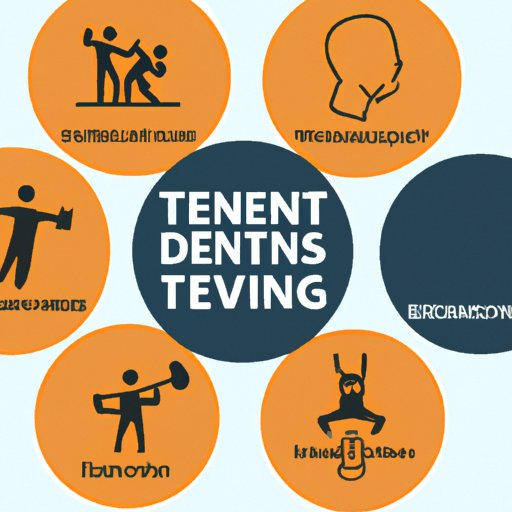Introduction
Developing talent is key to achieving success in any field. Whether you’re a budding artist, athlete, entrepreneur, or academic, honing your skills and growing your capabilities will help you reach the next level. But what does talent development actually mean?
Talent development is the process of improving or expanding one’s abilities in a particular area. This could involve learning new skills, mastering existing ones, and pushing yourself to achieve more than you thought possible. It’s a lifelong process that requires dedication, hard work, and self-reflection.
In this article, we’ll discuss the basics of talent development and provide tips for developing your talent. We’ll cover topics such as identifying your strengths and weaknesses, setting goals, practicing, learning from mentors and coaches, taking risks, and monitoring progress and celebrating successes.

Identify Your Strengths and Weaknesses
The first step in developing your talent is to identify your strengths and weaknesses. This will help you understand where you’re at and what areas need improvement. Assessing your skills doesn’t have to be complicated — simply take some time to reflect on what you excel at and what you struggle with.
You can also take a more formal approach by asking colleagues or mentors for feedback or completing a self-assessment test. These assessments can provide insight into your skill levels and help highlight areas for growth. Once you have a better understanding of your strengths and weaknesses, you can begin to set goals for yourself.
Set Goals for Yourself
Setting goals is essential for staying motivated and making progress. When it comes to developing talent, it’s important to set both short-term and long-term goals. Short-term goals are achievable within a few weeks or months and should be specific and measurable. Long-term goals are more ambitious and may take years to accomplish. Both types of goals will help keep you focused on your development journey.
When setting goals, make sure they’re realistic and achievable. Break them down into smaller steps and focus on one goal at a time. Write down your goals and review them regularly to stay on track. Finally, don’t forget to celebrate when you reach a goal — this will keep you motivated to continue working towards your long-term ambitions.
Practice, Practice, Practice
The best way to develop your talent is to practice, practice, practice. Through repetition, you can build muscle memory, acquire new skills, and refine existing ones. You’ll also become more comfortable with your craft, which will help boost your confidence and performance.
Make sure you’re practicing purposefully. Focus on the areas where you’re weakest and break down challenging tasks into smaller, manageable chunks. If you’re struggling with something, ask for help and consider trying out different strategies until you find what works best for you.
Learn from Mentors and Coaches
Having a mentor or coach can be incredibly beneficial for talent development. A mentor or coach can provide guidance, advice, and support, which can help you stay motivated and reach your goals. They can also provide valuable feedback and help you identify opportunities for growth.
Finding a mentor or coach isn’t always easy, but there are ways to increase your chances. Networking is key — attend events, join groups, and reach out to people in your industry. You can also use online platforms such as LinkedIn to connect with potential mentors or coaches. Once you’ve found someone, make sure to take full advantage of the relationship.

Take Risks and Embrace Failure
Taking risks is an important part of talent development. Taking risks can help you push yourself out of your comfort zone and challenge yourself to try something new. It can also open up new opportunities and help you grow as a person.
It’s natural to be afraid of failure, but it’s important to remember that failure is not the end — it’s a learning opportunity. Instead of letting fear hold you back, embrace failure and use it to motivate you to keep going. Reflect on what went wrong and use it to inform your decisions moving forward.

Monitor Progress and Celebrate Successes
As you work towards developing your talent, it’s important to monitor your progress and celebrate your successes. Tracking your progress will help you identify areas of improvement and stay motivated. Celebrating your achievements, no matter how small, will help reinforce positive behaviors and give you a sense of accomplishment.
To track your progress, set measurable goals and track your progress over time. You can use charts, graphs, or other visual tools to help you visualize your progress. And don’t forget to celebrate your successes — treat yourself to something special when you reach a goal or complete a project.
Conclusion
Developing talent is an ongoing process that requires dedication and hard work. To get the most out of your development journey, start by identifying your strengths and weaknesses. Then, set realistic goals and practice regularly. Find a mentor or coach to help guide you, and don’t be afraid to take risks and embrace failure. Finally, monitor your progress and celebrate your successes along the way.
(Note: Is this article not meeting your expectations? Do you have knowledge or insights to share? Unlock new opportunities and expand your reach by joining our authors team. Click Registration to join us and share your expertise with our readers.)
